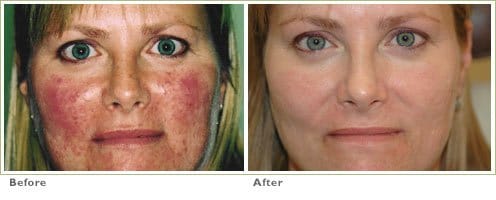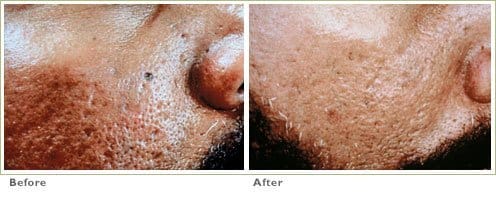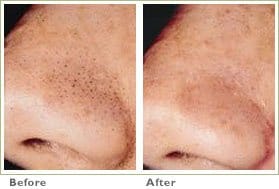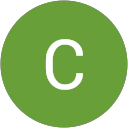Laser Treatments in Northern California

About Laser Treatments
Acne and wrinkles can now be treated by lasers with impressive results. Due to the growing incidence of antibiotic-resistant bacteria, novel approaches to treating skin conditions have been approved which may limit the need for oral antibiotics and topical medications.
Benefits of Laser Treatment
- Effective
- No down time
- Reduces acne
- Reduces rosacea
- Reduces or eliminates use of oral antibiotics
- Reduces rhinophyma (enlarged nose from rosacea)
- Reduces sebaceous gland hyperplasia
- Eliminates concerns of antibiotic-resistant bacteria
- Minimal risk
How Does Laser Treatment Work?
Berman Skin Institute’s Process for Laser Treatment
Patients undergo one or more sessions with either the V Beam Laser, the Quantum SR PhotoFacial-IPL device, the KTP laser, or the Blu-U device. During these treatments, a light is painlessly passed over the surface of the skin.
Laser treatments for winkles, acne, and other skin diseases take advantage of photochemical reactions between naturally produced photosensitizing agents within the skin, light, and oxygen. The laser light activates an endogenous and naturally produced chemical in the skin causing a photochemical reaction which destroys skin bacteria. Additionally, the lasers directly shrink sebaceous glands, reducing the oil that bacteria feed on.
The end result is less bacteria, less inflammation and a great reduction in acne lesions. The 21 minute procedure is followed by avoidance of the sun for a few days and the application of a gel or liquid sunscreen.
What Our Clients Have to Say
I went here for a 1-off skin concern a year ago. The front desk scheduled a follow-up appointment without my knowledge for a year later. I missed their reminder call the day before the appointment (they called at 8 am and it went to voicemail). By the time I listened to their voicemails 2 days later I found out I would be charged $150 for missing the appointment.
Frequently Asked Questions about Laser Treatments
These treatments are considered very safe. A thorough evaluation by your medical provider is necessary. The specific risks and the suitability of these procedures for a given individual can be determined only at the time of consultation. All procedures have some degree of risk. Minor complications that do not affect the outcome occur occasionally.
While most patients have no irritation to the skin, some will note a mild sunburn-like reaction which fades in a few days.
This is a painless procedure.
Avoid excessive sunlight for 3 days before procedure.
Avoid excessive sunlight for three days after procedure. Avoid excessively drying topical medications for three days after the procedure.
Our Physicians, Physician Assistants and Registered Nurses.
Anyone who is suffering from acne may consider these treatments with the exception of patients with lupus or other photosensitivity diseases.
Laser Treatment Photo Gallery






*Results may vary.
Our Locations for Laser Treatment - San Francisco Bay Area, Sacramento & Other Locations
Berman Skin Institute is among the largest dermatologic and aesthetic laser surgery centers on the globe, with laser treatment locations in:
View our locations page to find laser treatment near you.








